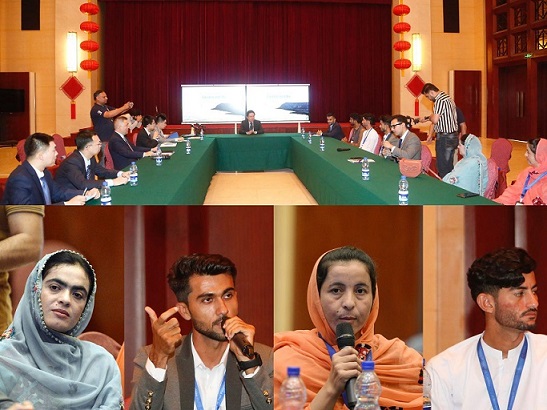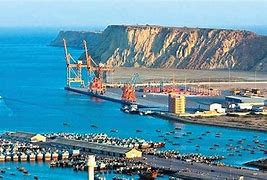Aamir Bizenjo, a 22-year-old student of Gwadar University in Pakistan’s southwest Balochistan province, found China’s development quite interesting and inspirational, Xinhua reported on Sunday.
He has been witnessing the development in the port city of Gwadar under the China-Pakistan Economic Corridor (CPEC), and has now got a vision for the development of his province during his trip to Pakistan’s capital Islamabad, in which he met Chinese officials and visited different platforms and consortiums under the collaboration of the two countries. He was part of a delegation comprising several Gwadar University students and faculty members that visited Islamabad from Thursday to Saturday, which was jointly organized by the Chinese embassy in Pakistan and the Islamabad-based think-tank Pakistan-China Institute.
“I am thankful to the Chinese for arranging this visit to give us exposure. We exchanged ideas with each other about economic growth and how the two countries can develop together, and seeing how China achieved prosperity gave me a new sense to work for the development of my province,” Bizenjo said in an interview with Xinhua. According to Bizenjo, the delegation visited the Chinese embassy where they saw presentations on China’s path to modernization, the Global Development Initiative, the Global Security Initiative, the Global Civilization Initiative, and Chinese projects in Pakistan, especially the CPEC. “After knowing about these initiatives and projects, I got a better understanding of China and the Chinese people,” Bizenjo said, who had earlier got a China-funded scholarship at the university.
“They are not just looking for the future of China but are emphasizing that no one should be left behind and to uplift everybody,” he added. The delegates enjoyed the interaction, and exchanged ideas with the Chinese diplomats and explained to them the situation of CPEC projects in Balochistan, particularly in Gwadar. “Chinese are very nice people. We have seen that they always have smiles on their faces and their hospitality is very good,” Rizwan Asgher, a student of the Information Technology Department of Gwadar University, said in a conversation with Xinhua. The Pakistani delegates appreciated China’s investment, especially their efforts under corporate social responsibility like the distribution of solar panels, laptops, health facilities, vocational institutes, etc.
They specifically thanked the Chinese for the educational scholarships, which they believed were very helpful to the youth of Balochistan and they hoped that the scope of such programs would be further expanded in the future. “Now I want an opportunity to visit China for my capacity building and professional growth in order to learn from the Chinese universities so that I can become a good teacher,” Sadia Naseer, Director of Student Affairs at Gwadar University, told the Chinese diplomats. “On the other hand, highlighting the economy of Pakistan, the Chinese friends told us that youth has the most important role in the economic growth of a country,” Bizenjo said.
A country achieves economic growth when its youth becomes energetic and skillful, he quoted the Chinese diplomats as saying. The delegates also had engagements, and interactions with the members of the All-Pakistan Chinese Enterprises’ Association (APCEA), officials of the Chinese desk at Pakistan’s Foreign Ministry, and took a trip to the Confucius Institute at Islamabad-based National University of Modern Languages where they also had a dialogue with its faculty and administration. Bizenjo said the engagement at APCEA had been very productive as he got a lot of business ideas from it and is now interested in exploring them in Balochistan in the future.
The group also took a tour of a China-funded compassionate home Islamabad China-Pakistan Youth One Heart Step and Cure Home, where underprivileged children, including orphans, suffering from long-term diseases, and attendants of patients who had been admitted to hospitals for long-term treatment got free of cost accommodation, food, and education. “The most inspirational moment for me was to visit this place where the Chinese are taking care of orphans and other kids. I gave them my contact number and said that I want to open its branch in my hometown as well,” said Bizenjo. Wang Shengjie at the Chinese embassy said this year marks the harvest year for the Gwadar port as the new international airport will be established this year, and the desalination water plant will also be built. “With the joint efforts made by the Chinese and Pakistani governments, and in particular, the local people, we can make the dream come true,” said Wang.

















